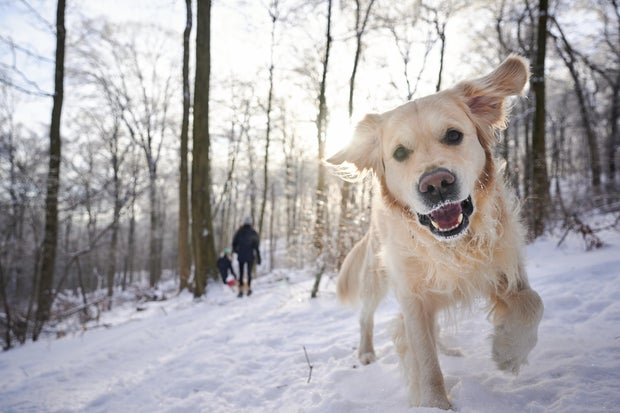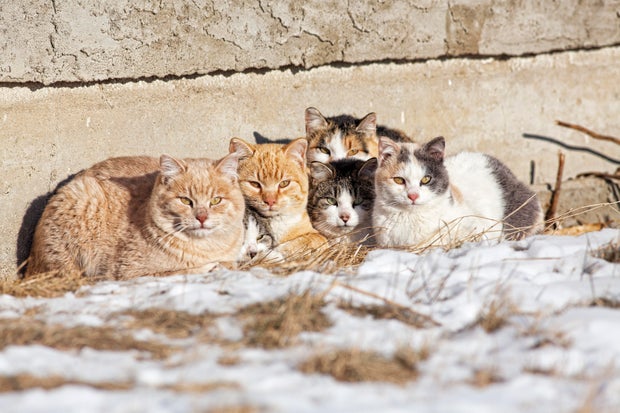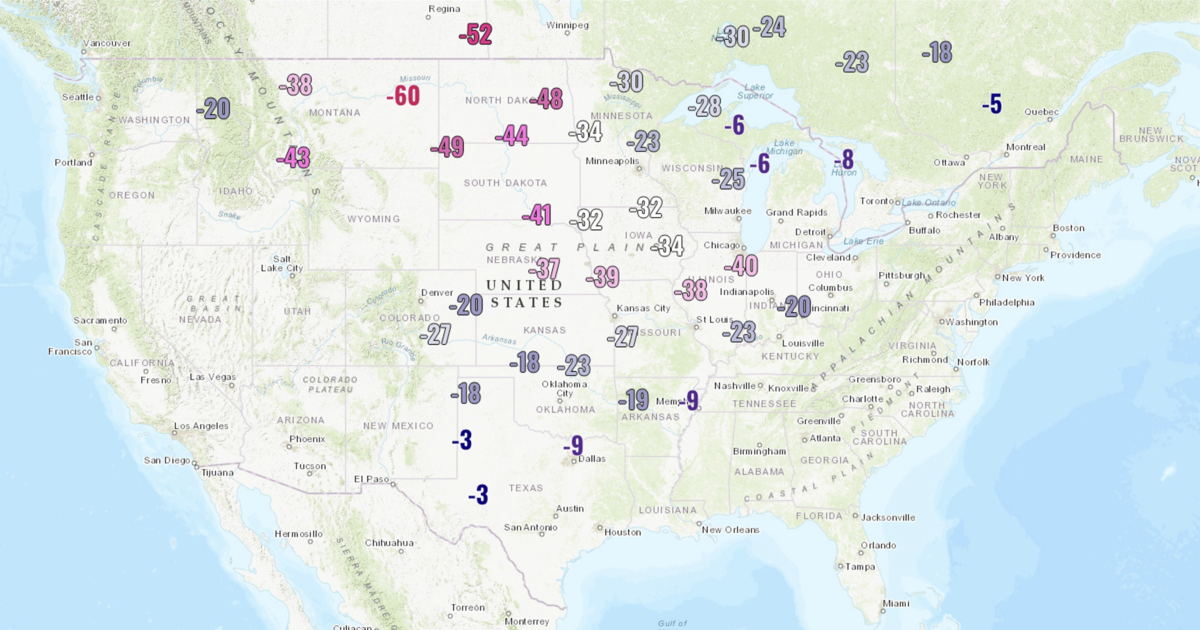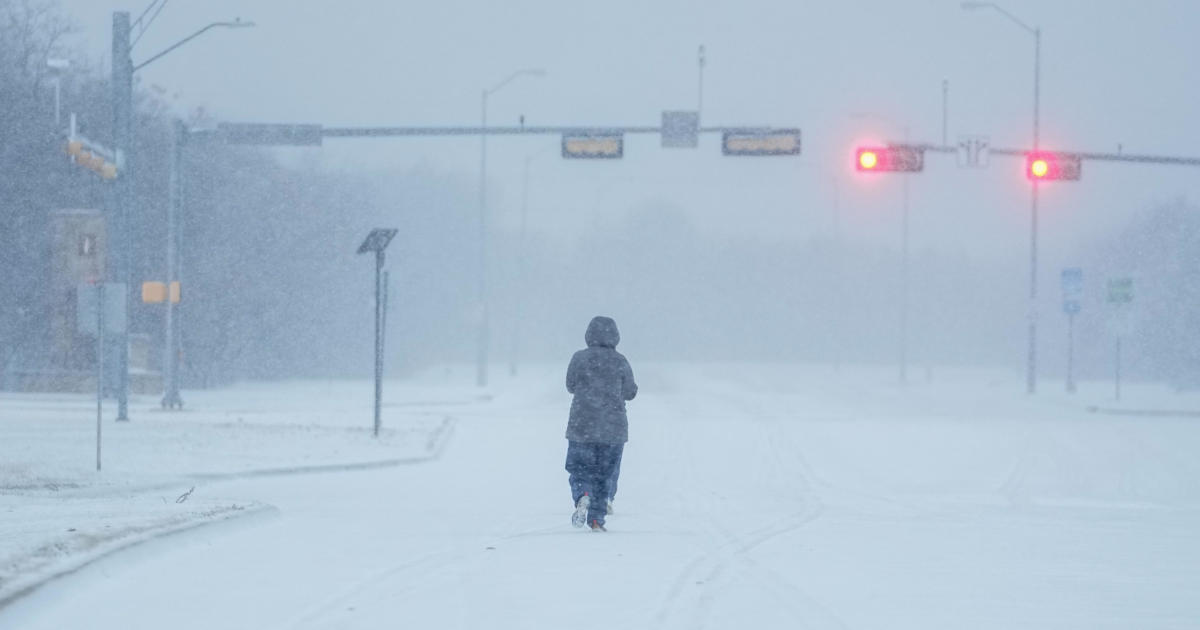What temperatures are too cold for dogs, cats and more animals? Experts explain when to bring them inside
As snow storms and cold temperatures take over large portions of the United States, it might be tough to take your dog out for a walk, leave cats outside, or keep other animals such as horses, cows and chickens safe in the freezing weather. Veterinarians are offering advice on how best to handle pets during the Arctic blast.
Dr. Rena Carlson, president of the American Veterinary Medical Association, told CBS News Tuesday that it's important to be prepared for such weather events.
"When it comes to pets, if you can consult your veterinarian, they have that medical history to be able to help you understand how cold tolerant your pet will be," Carlson said. "In a livestock situation, be prepared with making sure that we can get that feed to them and make sure they have easy access...They also need really easy access to water and make sure that is not frozen so that once again, they can keep their bodies hydrated and keep their bodies fueled to in order to tolerate the cold."
- Chicagoans braving the bitterly cold weather, city opens emergency warming centers
- Some areas of North Texas likely to see more snow than originally forecast
- Colorado arctic cold front locked in, Denver & other cities experience another day with dangerously cold wind chills
How cold is too cold to walk your dog?
It depends on the dog's breed, body condition, size, hair coat and whether they have pre-existing conditions, Dr. Wasi Ashraf, medical director at VEG Williamsburg in Brooklyn, New York, told CBS News.
Ashraf said she becomes "concerned" about the cold when it drops below freezing, 32 degrees Fahrenheit.
"I'm really, really worried if it's like under 20 [degrees Fahrenheit], for most average dogs," Ashraf said. "But again, this kind of depends on what type of dog you have, and how well they're gonna tolerate being outside."
And when you do need to take your dog out in the cold, Ashraf advises that you limit the amount of time that you're spending outside to around 10 to 15 minutes.
"If you're bundled up, and you find that it's too cold and you can't handle it any longer, your dog probably can't either," Ashraf told CBS News.
In addition, she said to consider getting your dog a winter jacket and placing booties on their feet to protect them from snow and the chemical treatments in salts used for de-icing. Dogs left outside should still have adequate access to shelter and should be able to leave those conditions when they feel cold, Ashraf added.
What temperatures can outdoor cats tolerate?
Like dogs, the ability of outdoor cats to withstand the cold is dependent on several factors, such as breed, size and hair coat. Ashraf said they are still prone to developing hypothermia and frostbite, and are arguably more sensitive to the cold than dogs.
"They have less insulation, especially, outdoor cats tend to be on the thinner side," she told CBS News.
Feral cats will naturally seek heat sources, Ashraf explains, and might try to hide under porches and patios, snuggle together for warmth or look for other enclosed spaces. In New York City, feral cats will sometimes find themselves in the basements of buildings or trash rooms, or wherever they can find protection from wind, rain or snow. Sometimes, they can even be found underneath or inside car engines, she adds.
"Unfortunately, there are many feral cats that don't make it if there aren't adequate shelters and non-frozen water sources available," Ashraf said.
If they can't be brought inside, she suggests providing them with some type of enclosure or shelter that can protect them from the elements.
What temperatures can horses tolerate?
Carlson told CBS News that horses and cows have bigger bodies compared to poultry and other livestock, and their metabolism will acclimate to the temperature as it gets colder and colder. Still, she said, it's important to provide them with shelter to ensure they have easy access to their food and water source.
"Adequate nutrition and really good water sources are super important for those species to be able to survive and tolerate those super cold temperatures," she said.
What temperatures can chickens, ducks and other birds tolerate?
Carlson, again, said the size of the animals plays a factor, along with what they're temperatures normally acclimated to.
"So if you do have smaller birds, chickens, you do want to provide some heat for them in the coop," Carlson said. "Safely provide some heat source, because those bitter cold temperatures can absolutely affect them."
for more features.






